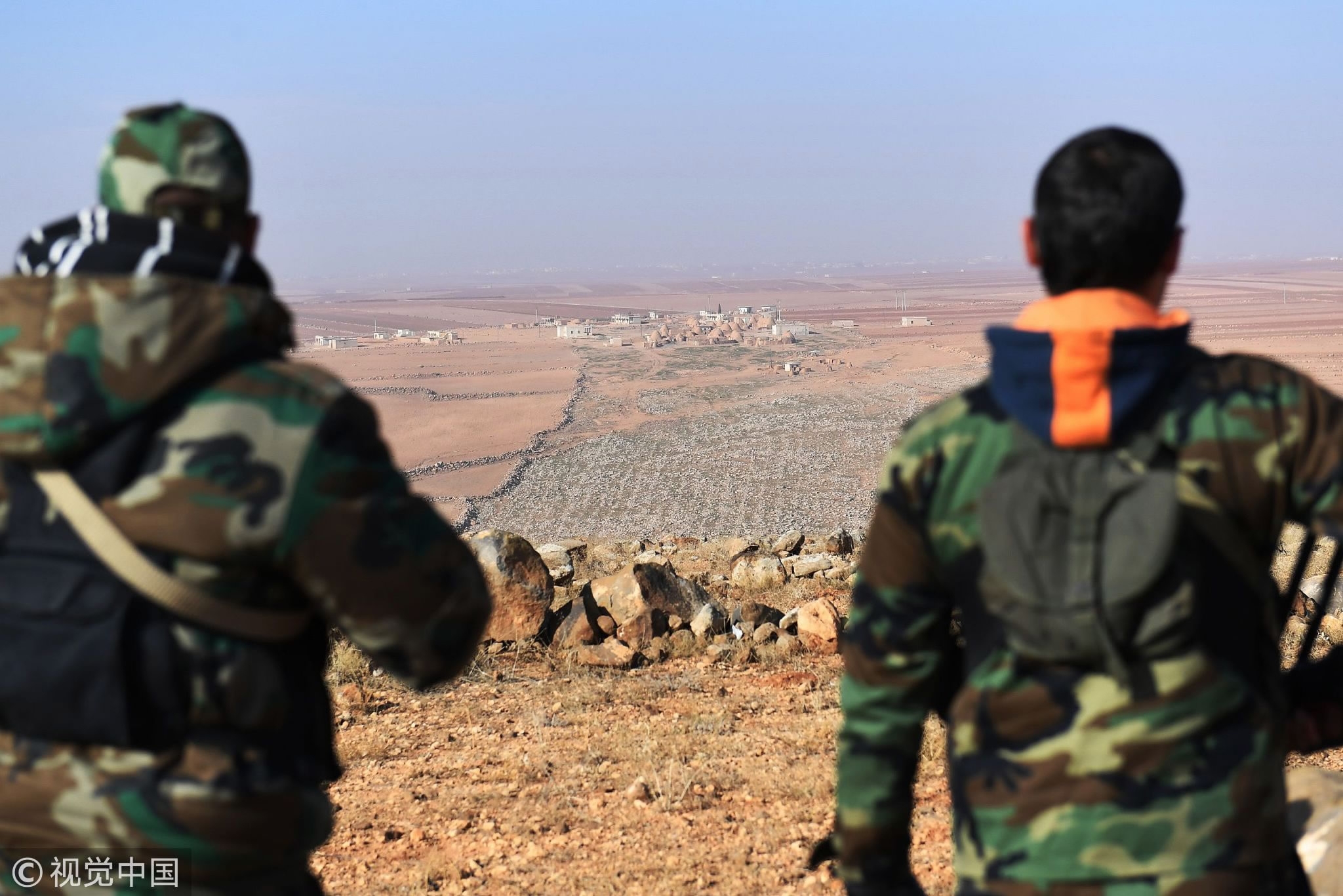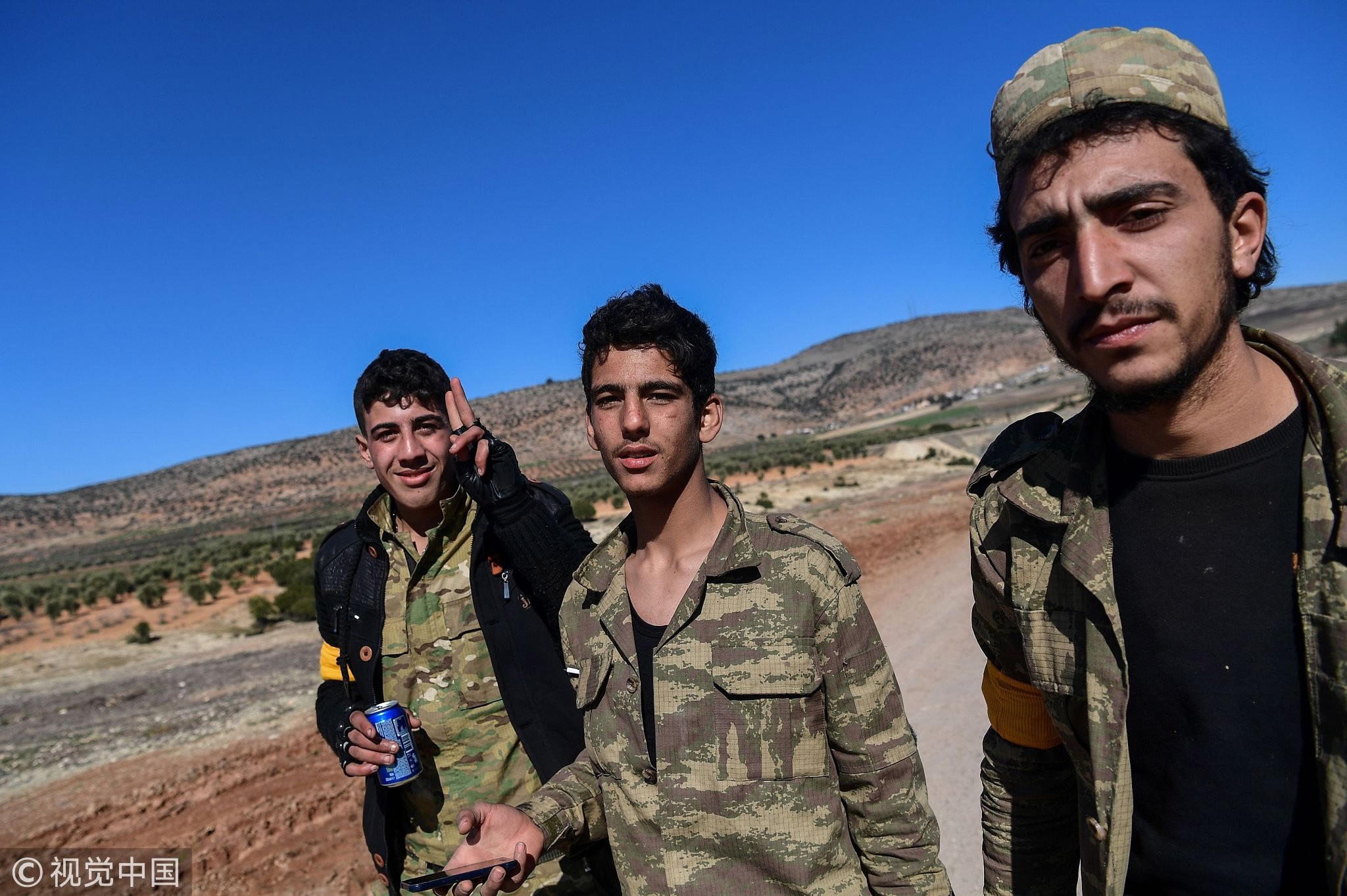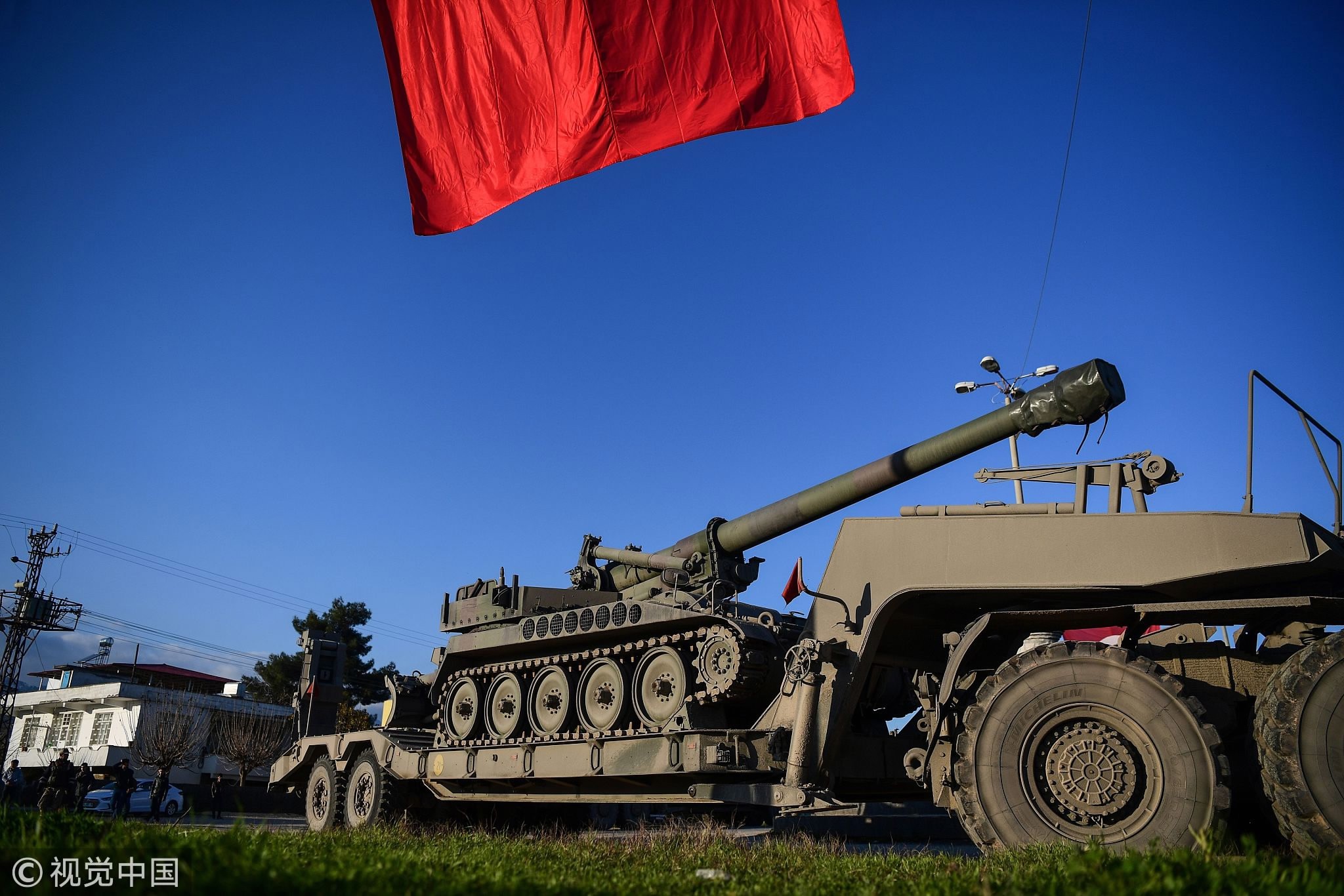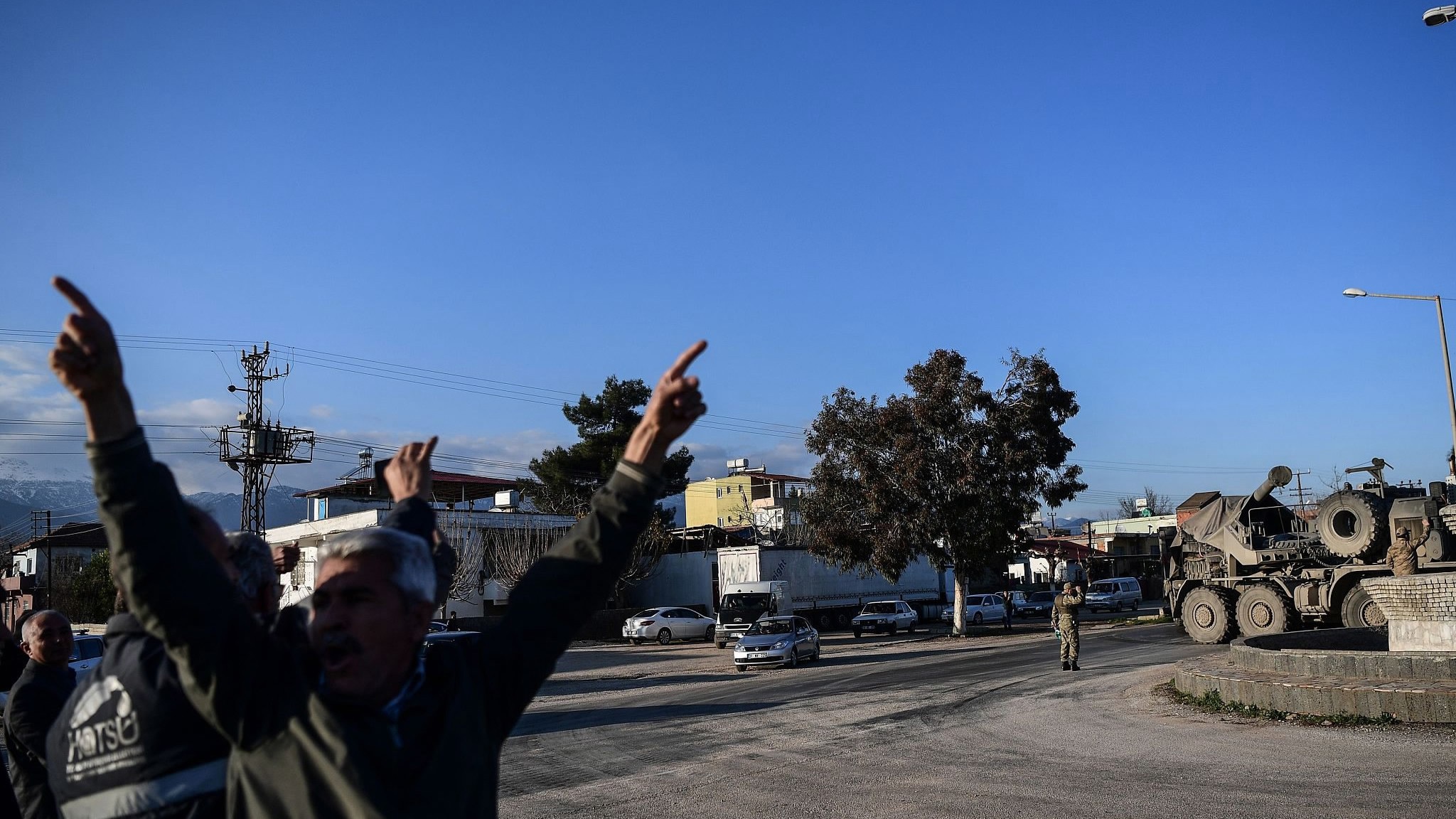The Russia-sponsored diplomatic talks over Syria have begun in the Black Sea resort city of Sochi. The two-day conference that started on Monday has been given the name the “Congress of the Syrian National Dialogue,” which shows Russia’s intention to bring all the sensitive topics out onto the negotiation table.

Members of the Syrian government forces look out towards the horizon near Jabal al-Hass in the southern part of Aleppo province as they advance towards the Abu Duhur military airport in the ongoing offensive against opposition fighters on January 14. /VCG Photo
Members of the Syrian government forces look out towards the horizon near Jabal al-Hass in the southern part of Aleppo province as they advance towards the Abu Duhur military airport in the ongoing offensive against opposition fighters on January 14. /VCG Photo
According to Russia’s President Vladimir Putin, the Sochi conference, which is one of the three major negotiation tracks that are attempting to bring an end to Syria’s seven-year-long civil war, aims to draw-up “a framework for the future structure of the state, the adoption of a new constitution, and, on the basis of that, the holding of elections under United Nations supervision.” Although an inclusive national dialogue is indeed a crucial step towards a lasting and peaceful future in Syria, there are still major obstacles to reaching a successful consensus at the Sochi conference.
The first obstacle is that basic political trust is still absent among the participants. From UN-sponsored talks in Geneva to Russia-Turkey-Iran-backed talks in Astana, political representatives from both the Syrian government and several opposition parties have blamed each other for the current situation, stormed out of meetings and disagreed on proposed resolutions. While the Syrian government has consistently refused to accept that “Assad should go,” the armed opposition says Assad’s removal is a precondition to peace.

Turkish-backed Syrian rebel fighters gesture prior to being driven to the Turkish-Syrian border in Kilis, on January 30, as part of Operation "Olive Branch" against the Kurdish People's Protection Units (YPG) in Syria, which Turkey considers a "terror" group. /VCG Photo
Turkish-backed Syrian rebel fighters gesture prior to being driven to the Turkish-Syrian border in Kilis, on January 30, as part of Operation "Olive Branch" against the Kurdish People's Protection Units (YPG) in Syria, which Turkey considers a "terror" group. /VCG Photo
Second, although the Sochi conference is “inclusive,” not all the parties related to Syria civil war are invited. Under pressure from Turkey, the Kurdish Democratic Union Party (PYD), which is the major political power dominating large parts of Northern Syria, is not present at the Sochi conference. The absence of PYD suggests a continuation of injustice and alienation of the minority groups inside Syria, and would undermine the successful transformation of Syria towards a more democratic and inclusive state. Especially when the Turkey-backed Free Syria Army is launching military offenses against the PYD-held Afrin area in northwest Syria. The political and military uncertainties for northern Syria still prevails and it is too early for Turkey, the Syria government and other Syria opposition parties to sit down and talk about the political structure of a future Syrian state.
The third obstacle comes from the divisions within the Syrian opposition camp. There are various divisions within the opposition, consisting of at least seven factions. The main division within the opposition groups has been between the Syrian Negotiations Commission and two dissident groups, the Moscow and Cairo platforms. These groups are founded and supported in Moscow and Cairo, maintain close ties to Russia and are not perceived as a threat by the Assad government, differentiating them from the Higher Negotiation Committee, which has repeatedly called for the dismantling of the regime as a premise for peace.

A Turkish-made T-155 Firtina (Storm) howitzer as it is dispatched to the border at Hassa near Hatay, southern Turkey on January 28. /VCG Photo
A Turkish-made T-155 Firtina (Storm) howitzer as it is dispatched to the border at Hassa near Hatay, southern Turkey on January 28. /VCG Photo
Last but not the least, Russia is still not accepted by some regionals states and Syria opposition parties as the “neutral” broker for Syrian political talk. Russian military personnel and military bases still remain in Syria, and the “close relation” between Russian and Syrian governments has been interpreted by many Syrian opposition leaders and the United States as the major obstacles to accepting Russia’s dominant role in peace talks. Many Western analysts even suspect that Russia wants to “dominate” the future of Syria through launching a parallel platform to the UN-led Geneva process in both Astana and Sochi.
The Sochi conference is unlikely to bring about a concrete plan for Syria’s future given the existence of these major obstacles. Patience and further efforts are still needed to help Syria end its civil war and restart its political reconstruction agenda.
(Wang Jin is a PhD candidate at the School of Political Science at University Haifa and also a research fellow at Syria Research Center at Northwest University. The article reflects the author's opinion, and not necessarily the view of CGTN.)





